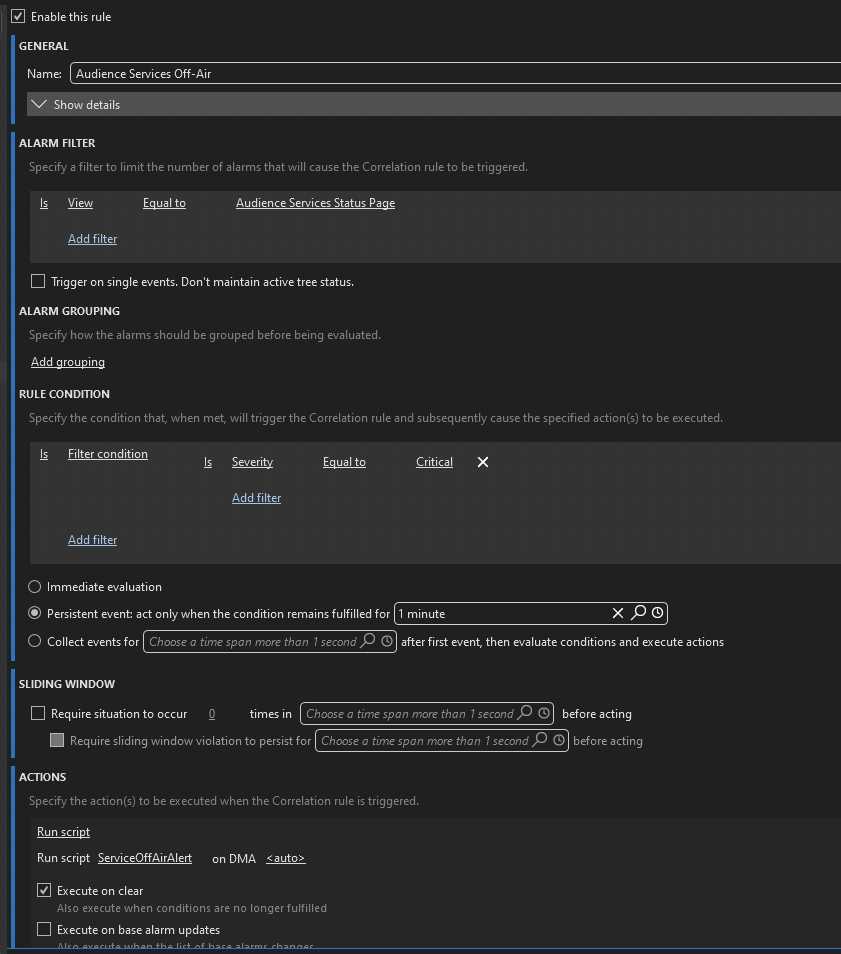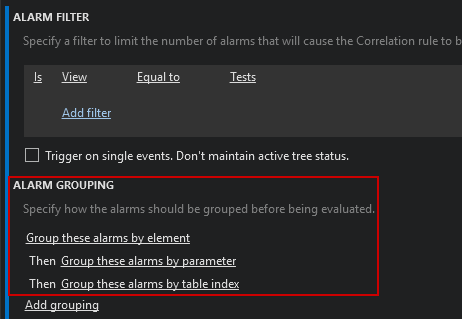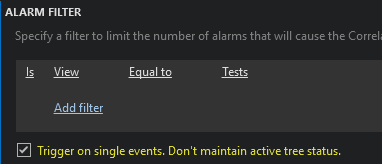Hi Community,
I have a view that contains 100+ services. All these services take parameters from a few elements.
I have a correlation rule. Its objective is to send an email for every service that is in alarm (technically it runs a script that sends the email because I need the script to perform some checks before sending the email).
The issue I'm running into is sometimes when multiple alarms occur, not all alarms trigger the script.
Note also, since the services rely on a few common elements, 1 alarm could affect several services. We only need the script to run once per alarm, because the script can loop through and send an email for each service affected by the alarm.
Any help to achieve the objective would be much appreciated.
Here's the screenshot of my Correlation Rule.

Hi Trong,
This is happening because the correlation rule no longer maintains the active tree status. As a result, the correlated alarm is updated with every new status change.
To avoid this, you can restrict the alarms that pass through the filters. For example, you could filter only for new alarms in one rule, and then use another correlation rule to filter for normal alarms that have dropped from critical.
Alternatively, you can uncheck the Trigger on single events. Don’t maintain active tree status and group the alarms first by element, then by parameter. If they are tables you can also group them by index.

This approach maintains active tree status so that not every alarm update triggers the correlation. It also prevents alarms from different elements and parameters from being grouped together.
Hi Trong,
To trigger the correlation rule for every single alarm, you need to enable the Trigger on single events. Don’t maintain active tree status.

Ref: General configuration of Correlation rules | DataMiner Docs.
Thanks Catarina, enable the Trigger on single events. Don’t maintain active tree status seems to do the job.
However I noticed a little quirk, the Correlation rule is triggered everytime the alarm has a property change. Is there an option to disable that? Ideally the correlation rule should only execute the script when the alarm is Open and when the alarm is Cleared.
Thanks,
Trong.